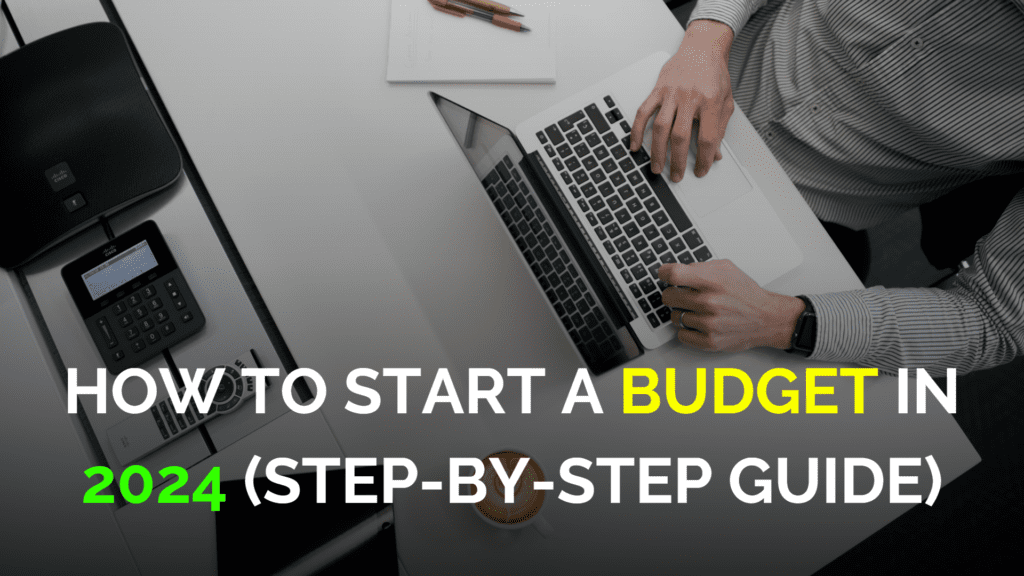
As a young professional, you’re likely just starting out in your career and building your financial future. This can be an exciting time, but it can also be overwhelming. With so many different things to think about, it can be hard to know where to start. That’s where this blog post comes in. We’re going to cover five essential personal finance tips for young professionals. These tips will help you to make sound financial decisions and set yourself up for success in the future.
1. Create a Budget
One of the most important things you can do for your Personal finance is to create a budget. This will help you to track your income and expenses, so that you can see where your money is going. Once you know where your money is going, you can start to make changes to save more and spend less.
There are many different budgeting methods out there, so find one that works for you and stick to it. Some popular budgeting methods include:
- The 50/30/20 rule: This rule allocates 50% of your income to essential expenses, 30% to discretionary expenses, and 20% to savings and debt repayment.
- The zero-sum budget: This budget allocates every dollar of your income to a specific expense or savings goal.
- The envelope system: This budget involves allocating cash to different categories of expenses, such as food, transportation, and entertainment.
Once you’ve created a budget, be sure to review it regularly and make adjustments as needed. Your financial situation will change over time, so it’s important to keep your budget up-to-date.
2. Save for Retirement
Retirement may seem like a long way off, but it’s important to start saving early. The earlier you start saving, the more time your money has to grow.
There are many different retirement savings options available, so choose one that’s right for you. Some popular retirement savings options include:
- 401(k) plans: 401(k) plans are employer-sponsored retirement savings plans. Many employers offer matching contributions, which essentially means that they’ll match a portion of your contributions up to a certain limit. This is free money, so don’t miss out on it!
- Individual Retirement Accounts (IRAs): IRAs are retirement savings accounts that you can open on your own. There are two main types of IRAs: traditional IRAs and Roth IRAs. Traditional IRAs allow you to deduct your contributions from your taxable income, but you’ll have to pay taxes on the withdrawals in retirement. Roth IRAs allow you to contribute after-tax dollars, but you can withdraw your contributions and earnings tax-free in retirement.
If you’re not sure which retirement savings option is right for you, talk to a financial advisor. They can help you to assess your financial situation and choose the best option for your needs.
3. Pay Off Debt
Debt can be a major financial burden. If you have debt, make it a priority to pay it off as quickly as possible. The longer you have debt, the more interest you’ll pay.
There are many different debt repayment methods available. Choose one that works for you and stick to it. Some popular debt repayment methods include:
- The snowball method: This method involves paying off your smallest debts first, regardless of interest rate. This can help you to stay motivated and see progress quickly.
- The avalanche method: This method involves paying off your debts with the highest interest rates first. This can save you money on interest in the long run.
If you have a lot of debt, consider talking to a credit counselor. They can help you to create a debt repayment plan and get out of debt faster.
Read More: 10+ Top Stocks to Buy in 2024 for Your Future Success
4. Build an Emergency Fund
An emergency fund is a savings account that you can use to cover unexpected expenses, such as a job loss, medical emergency, or car repair. Aim to save at least three to six months of living expenses in your emergency fund.
Once you have an emergency fund, you’ll be able to handle unexpected expenses without having to go into debt. This can give you peace of mind and help you to stay on track with your financial goals.
5. Protect Your Finances
There are many different ways to protect your Personal finance. Here are a few tips:
- Get adequate insurance coverage. This includes health insurance, car insurance, and renters or homeowners insurance.
- Monitor your credit report regularly. You can get a free copy of your credit report from each of the three major credit bureaus once a year at annualcreditreport.com. Review your credit report for any errors or unauthorized activity.
- Be careful about who you give your personal information to. Only give your personal information to trusted businesses and organizations.
- Use strong passwords and two-factor authentication for all of your online accounts.
- Keep your software up to date. Software updates often include security patches that can help to protect your devices from cyberattacks.
Conclusion
Personal finance can be a complex topic, but it’s important for young professionals to understand the basics. By following the tips in this blog post, you can set yourself up for financial success in your future.
Here are some additional tips that may be helpful for young professionals:
- Invest in yourself. This could mean taking courses or workshops to improve your skills, or attending networking events to meet new people and build relationships. Investing in yourself can help you to increase your earning potential and advance your career.
- Live below your means. This doesn’t mean that you have to live a frugal lifestyle, but it does mean that you should be mindful of your spending and avoid living paycheck to paycheck. If you can live below your means, you’ll be able to save more money and reach your financial goals faster.
- Don’t compare yourself to others. Everyone’s financial journey is different. Don’t get caught up in comparing yourself to others and feeling like you’re not doing well enough. Focus on your own goals and what’s right for you.
- Get professional help. If you need help with your finances, don’t be afraid to seek professional help. A financial advisor can help you to create a financial plan, choose the right investments, and make sound financial decisions.









Pingback: The 5 Most Important Financial Tips for Millennials to Help Them Reach Their Financial Goals - Ansari Sahab